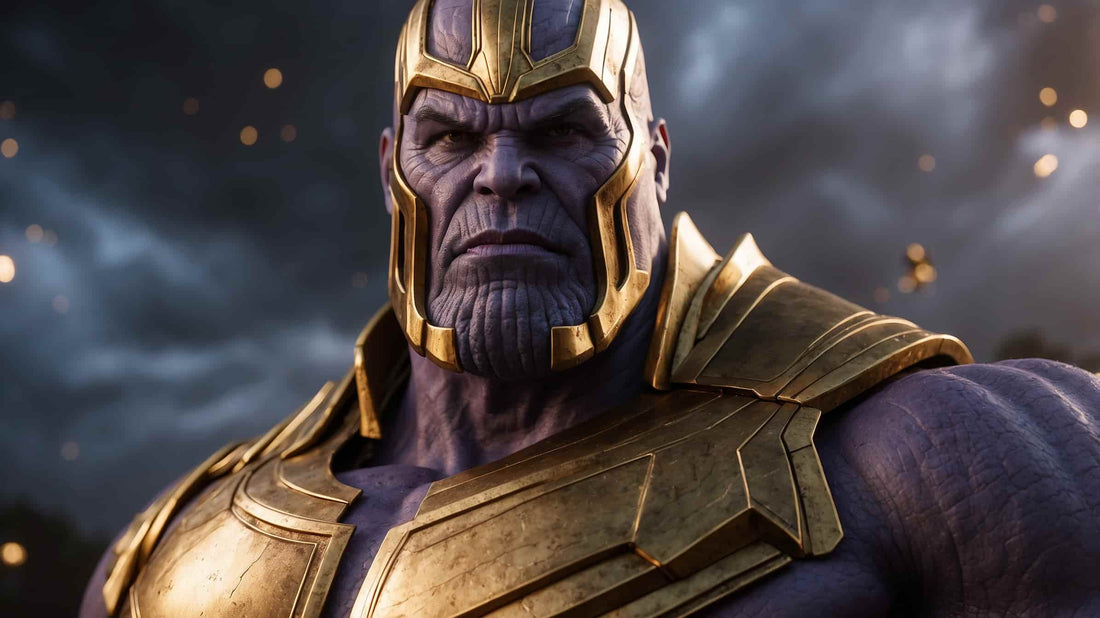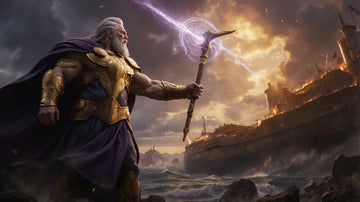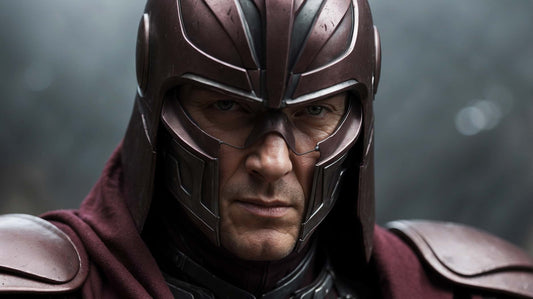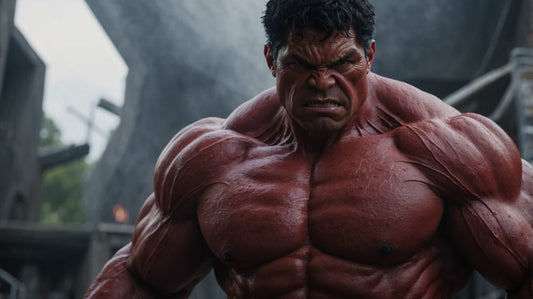
What if Thanos was right?
Thanos, the infamous antagonist of the Marvel Cinematic Universe (MCU), is often described as a fearsome tyrant. Yet, his motivations raise profound philosophical questions: what if he was right? Let's explore his obsession with universal balance and the implications of his actions through captivating questions posed by the biggest fans!
Why does Thanos want to kill half of the universe?
Thanos aims to eliminate half of all living beings to solve what he sees as a fundamental problem: overpopulation. According to him, the universe's resources are limited, and their overexploitation inevitably leads to misery and the collapse of civilizations.
This reasoning is inspired by Malthusianism, an economic theory advanced by Thomas Malthus, which asserts that population growth often outpaces the growth of available resources.
In Avengers: Infinity War, Thanos shares a striking example from his own past: his home planet, Titan, was once prosperous but plunged into chaos due to excessive population and insufficient resources. His radical solution, proposing an equitable reduction in population, was rejected. As a result: the planet perished.
This personal experience led him to believe that his approach is not only necessary but also inevitable.
However, experts from the Intergovernmental Panel on Climate Change (IPCC) and modern economists point out that this reasoning overly simplifies more complex issues. Overpopulation is not the sole cause of ecological crises; poor resource management, inequalities, and overconsumption by wealthy countries also play roles.

What was Thanos' goal?
Thanos' primary goal is to restore universal balance. In his view, this balance equates to prosperity and sustainability for future generations.
By using the Infinity Stones, he plans to execute his plan with a snap of his fingers, instantly eliminating half of all life forms.
Unlike many classic villains, Thanos seeks neither wealth nor personal power. He sees himself as a selfless savior, prepared to sacrifice for the common good. This vision is reinforced in his exchanges with Gamora, where he explains that he acts for a purpose greater than himself, stating: "It cost me everything I had."
However, his method raises ethical and practical questions. Reducing the population does not guarantee better use of resources.
A study conducted by NASA in 2021 showed that the solution to the climate crisis requires innovation and international collaboration, not drastic measures like those proposed by Thanos.
Moreover, his approach overlooks structural inequalities: removing half the population without differentiating between rich and poor does not correct social imbalances.
Why is Thanos obsessed with balance?
The concept of balance is central in Thanos' philosophy, rooted in his personal experience and observations. In his mind, the universe functions like an ecosystem that can be disrupted by excess, particularly in terms of population.
He often compares this balance to a cosmic scale, where loss on one side compensates for gain on the other.
This obsession finds an echo in contemporary ecological practices. For example, some wildlife conservation theories advocate strict population controls to prevent imbalances in ecosystems.
Yet, Thanos' logic goes much further, justifying massive sacrifices for what he perceives as the greater good.
Despite this, his approach remains simplistic. Overpopulation is just one factor among many affecting universal balance. Other variables include inequalities in resource access and environmental degradation caused by excessive consumption in wealthy societies.
Moreover, by arbitrarily reducing the population, Thanos ignores the social effects, such as psychological traumas and political instabilities.

Why can Thanos manipulate the Infinity Stones?
The Infinity Stones are primordial artifacts, each representing a fundamental aspect of existence: space, time, soul, reality, power, and mind.
Their manipulation requires exceptional physical and mental strength, as well as a deep understanding of their powers. Thanos, due to his quasi-divine nature as an Eternal Titan, possesses these qualities.
Thanos' iconic armor, combined with his gauntlet forged on Nidavellir, allows him to channel the colossal energy of the stones without being destroyed.
Other characters, such as Tony Stark and Hulk, have attempted to manipulate these artifacts but suffered severe physical consequences, highlighting Thanos' unique resilience.
In Marvel mythology, the Infinity Stones are not just power objects: they also symbolize universal forces. Thanos uses them not for his own gain, but to fulfill a cosmic vision.
This fundamental difference between him and other potential users, such as Loki or Ronan, reflects his determination and lack of quest for selfishness.
However, it is important to note that even Thanos is not infallible. The sacrifice of Gamora for the Soul Stone reveals an emotional vulnerability, showing that he remains a complex being despite his unmatched power.

Was Thanos right?
This question raises a moral and philosophical debate. Ecologically, reducing the population seems tempting to alleviate pressure on resources.
However, demographic and environmental experts agree that this solution is unrealistic and immoral. Thanos overlooks viable alternatives, such as the equitable redistribution of resources or sustainable development.
Moreover, his reasoning relies on an extreme utilitarian logic, where the overall well-being justifies massive sacrifices. This conflicts with deontological ethical approaches, which argue that certain actions, like mass murder, are morally unacceptable, regardless of the outcome.
In reality, current global crises, such as climate change and resource depletion, require collaborative and non-coercive solutions. Thanos, despite his strategic genius, represents a pessimistic and reductionist view of universal problems.
Thanos is a complex character, both tyrannical and visionary. While his ideas raise crucial questions about universal balance, his methods remain unacceptable and unrealistic. Yet, his quest pushes us to reflect on our own impact on the planet and to seek sustainable solutions that do not involve inhumane sacrifices.
By the MySuperSuit team






